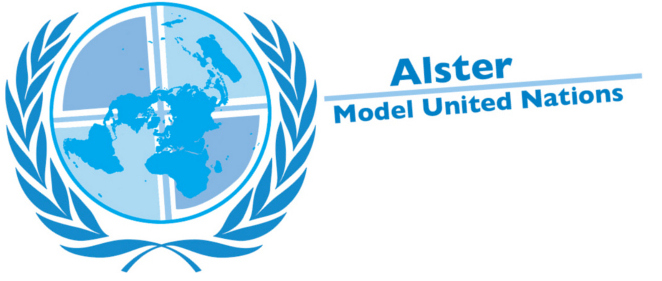During lobbying time the different groups proceeded with defining their statements and demands on the two topics concerning “Intelligence work” and “Prevention of an arms race in outer space”. While the discussion about weapons was rather quiet the two groups dealing with the issue of “Who are we allowed to spy on?” and “Who do we share those information with?” was of more interest.
Group 1:
Participants: United States of America, Australia, Canada, Norway, Iraq, Japan
Intention:
General: Wanting to be able to collect information from other countries amongst other things for safety reasons, like fighting terrorism.
Japan: Joined the group later, wanting to increase influence on the world by being able to trade information.
Iraq: Hoping for some kind of alliance with the US to increase their power by gaining information. Missing supplies and governmental problems make that impossible on their own.
Alliances: Assumption of an alliance between the US, Australia and Canada including sharing information to secure their power.
Group 2
Participants: Human Right Watch, Germany, Belarus, Syria, Egypt, Lebanon
Intention:
General: Being abled to collect information of their own county and preventing international danger like terrorism by sharing important information with each other based on a system of respect and trust.
Human Rights: Making sure that the line between collecting information and spying is not crossed defined as either looking into someone’s personal life, because of a dangerous suspicion or randomly doing so for other power gaining reasons.
When the groups were asked to join and to come to one conclusion the two parties got into a period of discussion. Pretty fast it was clear that the main difference between their resolutions was lying in the question whether it should be allowed to spy on other countries or not.
One the one hand there was the first group mainly consisting of really big countries who obviously don’t want to give up on the opportunity of gaining both political and economical strength. On the other hand there was the second group of rather small states trying to create an honest atmosphere between the governments.
While one might consider that attempt almost as naive we have to ask ourselves which attitude deserves more respect: Allowing the ones who already are rich and influential to ease their way to more power or fighting for the self-determination of every country no matter how strong it is. Clearly it is understandable that although the groups tried to find a solution that would work for all of them they couldn’t find a compromise, because the general view on this political aspect differed too much.
